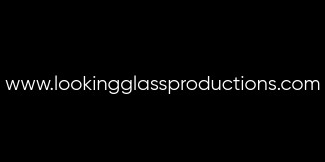Do you ever watch a relatively technically simple film and think "You know... I should be able to shoot something like this"?
Never mind the actor paychecks and union rigmarole.
No helicopter shots.
No exotic locales.
No freaky special effects.
No CGI-fests.
Just some straight forward camerawork + audio collection in sensible settings with straight forward acting between plausible characters, largely due to your (excellent) writing.
I've a small list of films that when I watch them I think I should be able to do.
Or at least aspire to become that good at a minimum.
In no particular order:
With a "modest" budget:
I'm sure I'm forgetting some others, but it's the idea that grates me at times.
What do you watch and think "You know... I should be able to shoot something like this"?
Never mind the actor paychecks and union rigmarole.
No helicopter shots.
No exotic locales.
No freaky special effects.
No CGI-fests.
Just some straight forward camerawork + audio collection in sensible settings with straight forward acting between plausible characters, largely due to your (excellent) writing.
I've a small list of films that when I watch them I think I should be able to do.
Or at least aspire to become that good at a minimum.
In no particular order:
- Juno : $7.5m budget, Panavision Panaflex Millennium XL, Panavision Primo Lenses
- The Messenger : $6.5m budget, Arricam LT, Cooke S4 and Angenieux Optimo Lenses
- Winter's Bone : $2.0m budget, Red One Camera, Zeiss Master Prime and Angenieux Optimo Lenses
- Defendor : $3.5m budget, Panavision Cameras and Lenses
- Super : $2.5m budget, Red One Camera
- Silent House : $2.0m budget, non EOS 5D Mark II, Zeiss Compact Prime Lenses
- 50/50 : $8.0m budget, Panavision Panaflex Millennium XL2, Panavision Primo Lenses
- Martha Marcy May Marlene : <$1.0m budget, Arricam LT, Zeiss Master Prime and Angenieux Optimo Lenses
- Like Crazy : $0.25m budget, Canon EOS 7D, Zeiss Ultra Prime Lenses
- 127 Hours : $18.0m budegt, Canon EOS 1D Mark IV, 5D Mark II, 7D, Moviecam Compact MK2, Zeiss Ultra Prime and Cooke Panchro Lenses
With a "modest" budget:
- Valhalla Rising : ~$6.0m budget, Red One Camera
- A Mighty Heart : $16m budget, Sony HDW-F750
- Margin Call : $3.4m budget, Red One MX, Zeiss Standard Speed and Angenieux Optimo Lenses
- Whip It : $10m budget, Arriflex 235, Panavision C-Series Lenses, Panavision Panaflex Platinum, Panavision C- and E-Series Lenses
- Be Kind Rewind : $20.0m budget, Arricam ST, Cooke Xtal Express Lenses
I'm sure I'm forgetting some others, but it's the idea that grates me at times.
What do you watch and think "You know... I should be able to shoot something like this"?
Last edited:









